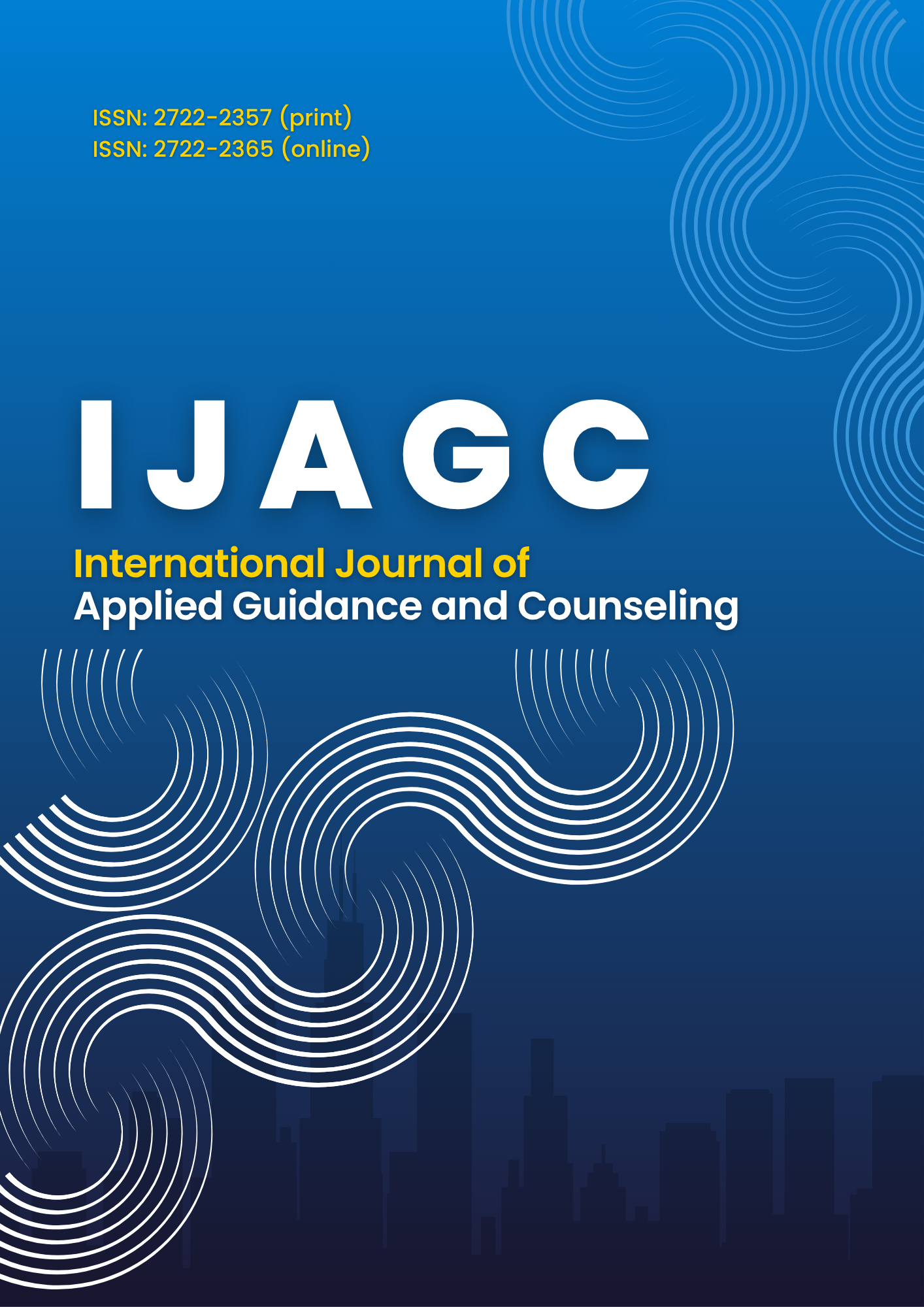Developing the SFBC Approach Individual Counseling Clinical Supervision Instrument in Senior High Schools
DOI:
https://doi.org/10.26486/ijagc.v6i1.4401Abstract
Based on the researchers' initial study at four high schools in the city of Surabaya, the researchers found that counseling supervision instruments in schools tend not to have been developed scientifically and are not optimal enough to be used in supervising individual counseling implementation indicators. Therefore, through the Borg and Gall development model, this study intends to develop a credible and accurate individual counseling clinical supervision instrument with a Solution-Focused Brief Counseling (SFBC) approach. Validation results from two counseling experts, three high school counselors, a readability test in focus group discussions, and a limited trial of counseling supervision practices involving five different high school counselors. It was found that individual counseling clinical supervision instruments covering planning and practice aspects met three criteria of acceptability (accuracy, usefulness, and practicality), while in the readability test, it was in a good category with an average score of 82%, with a sufficient validity level of > 0.754 and reliability 0.630 and 0.681 which means good. So that this product can be used by senior counselors to assist them in implementing individual counseling clinical supervision in schools
Downloads
Published
Issue
Section
License
Copyright (c) 2025 Ach. Sudrajad Nurismawan, Muslihati, M. Ramli

This work is licensed under a Creative Commons Attribution-ShareAlike 4.0 International License.
Authors who publish with IJAGC: International Journal of Applied Guidance and Counseling agree to the following terms:
Authors retain copyright and grant the Insight right of first publication with the work simultaneously licensed under a Creative Commons Attribution License (CC BY-SA 4.0) that allows others to share (copy and redistribute the material in any medium or format) and adapt (remix, transform, and build upon the material) the work for any purpose, even commercially with an acknowledgement of the work's authorship and initial publication in Insight. Authors are able to enter into separate, additional contractual arrangements for the non-exclusive distribution of the journal's published version of the work (e.g., post it to an institutional repository or publish it in a book), with an acknowledgement of its initial publication in Insight.
Authors are permitted and encouraged to post their work online (e.g., in institutional repositories or on their website) prior to and during the submission process, as it can lead to productive exchanges, as well as earlier and greater citation of published work (See The Effect of Open Access).












